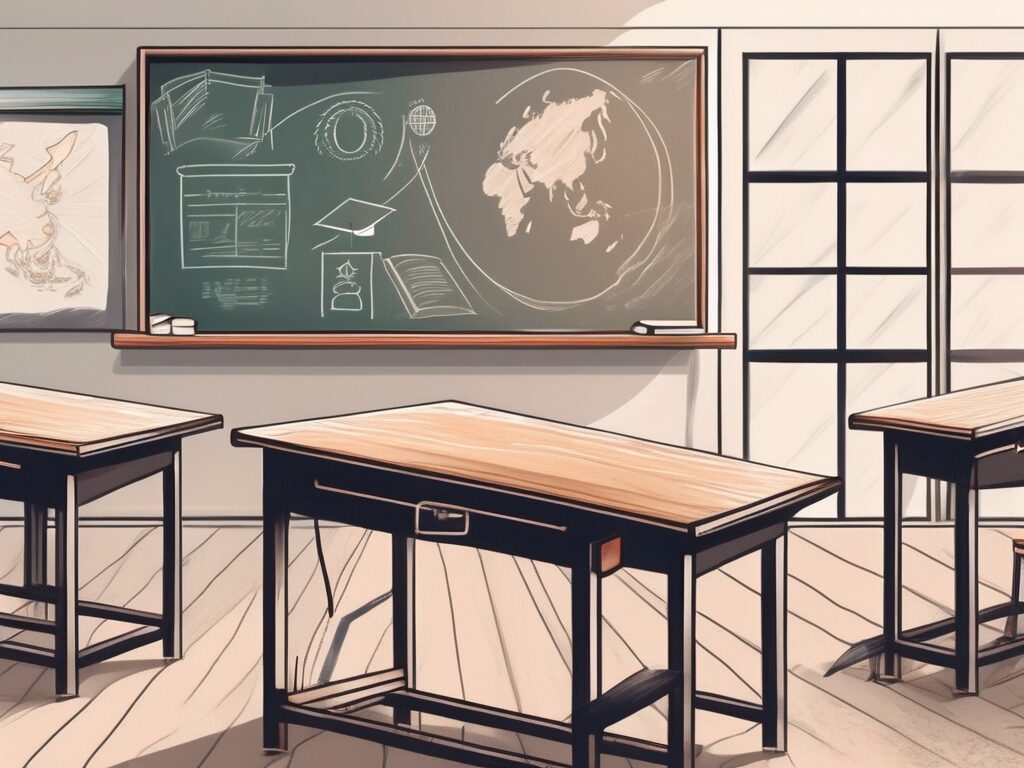In the ever-evolving landscape of global education, the role of an international teacher is becoming increasingly significant. This is particularly true in China, a country that has seen a surge in demand for international educators in recent years. For those with a Master’s in Education, opportunities abound, but what exactly does the role of an international teacher in China entail? In this piece, we’ll delve into four key aspects of this unique profession.
1. Understanding the Chinese Education System
A. The Structure
The Chinese education system is quite different from those in Western countries. It is highly competitive and exam-oriented, with a strong emphasis on core subjects such as mathematics, science, and Mandarin. Understanding this structure is crucial for an international teacher, as it informs the expectations and pressures students may face.
Furthermore, the Chinese education system is divided into several stages, including primary, secondary, and tertiary education. Each stage has its own unique characteristics and challenges, requiring a versatile approach from educators.
B. Cultural Differences
Teaching in China also involves navigating cultural differences. For instance, Chinese classrooms traditionally favour a teacher-centred approach, with less emphasis on student participation compared to Western classrooms. This can be a significant adjustment for international teachers accustomed to more interactive teaching methods.
Moreover, respect for teachers is deeply ingrained in Chinese culture. This can create a more formal classroom environment, which international teachers need to understand and respect.
2. Adapting Teaching Methods
A. Integrating Western and Chinese Methods
One of the key roles of an international teacher in China is to integrate Western teaching methods with the Chinese education system. This can involve introducing more interactive and student-centred learning activities, while still respecting the structure and rigour of the Chinese system.
For example, an international teacher might incorporate group projects or discussions into their lessons, encouraging students to express their ideas and learn from each other. This can provide a balance between the Chinese focus on rote learning and the Western emphasis on critical thinking.
B. Using Technology
Technology is another tool that international teachers can use to enhance their teaching methods. Many Chinese schools are equipped with modern technology, providing opportunities for interactive and engaging lessons.
For instance, an international teacher might use digital tools to create interactive quizzes or games, making learning more fun and engaging for students. They might also use online platforms for homework and assignments, providing students with immediate feedback and support.
3. Building Relationships
A. With Students
Building strong relationships with students is a crucial part of an international teacher’s role. This involves understanding and respecting cultural differences, as well as creating a supportive and inclusive classroom environment.
For example, an international teacher might spend time getting to know their students’ interests and backgrounds, using this information to make lessons more relevant and engaging. They might also implement strategies to promote respect and understanding among students, fostering a positive classroom culture.
B. With Parents and Colleagues
International teachers also need to build relationships with parents and colleagues. This can involve regular communication about students’ progress, as well as collaboration on teaching strategies and resources.
For instance, an international teacher might organise parent-teacher meetings to discuss students’ achievements and challenges. They might also work closely with other teachers to share ideas and resources, contributing to a supportive and collaborative school community.
4. Continuous Professional Development
A. Staying Updated
As in any profession, continuous professional development is crucial for an international teacher. This involves staying updated on the latest teaching methods and trends, as well as seeking opportunities for further training and development.
For example, an international teacher might attend workshops or conferences, or pursue additional qualifications. They might also engage in self-directed learning, such as reading professional journals or participating in online forums.
B. Reflecting on Practice
Reflecting on one’s own teaching practice is another important aspect of professional development. This involves regularly reviewing and evaluating one’s own teaching methods, seeking feedback from students and colleagues, and making necessary adjustments.
For instance, an international teacher might keep a teaching journal, recording their observations and reflections after each lesson. They might also seek feedback from students through surveys or discussions, using this feedback to improve their teaching methods.
In conclusion, the role of a Master’s in Education international teacher in China is multifaceted and challenging, but also incredibly rewarding. By understanding the Chinese education system, adapting teaching methods, building relationships, and engaging in continuous professional development, international teachers can make a significant impact on their students’ learning and development.
Advance Your International Teaching Career with iQTS
As you consider the multifaceted role of an international teacher in China, it’s clear that professional growth is key to success. The IQTS at UWE offers the International Qualified Teacher Status (iQTS) Programme, specifically designed to elevate your teaching credentials. With our programme, you can overcome the barriers of strict qualification requirements, achieve remarkable career progression, connect with a global network of professionals, and gain a comprehensive understanding of international curricula. Embrace the opportunity for flexible, online professional development that aligns with your work commitments. Make Your Next Step towards becoming a more adaptable, connected, and qualified international educator with iQTS.

